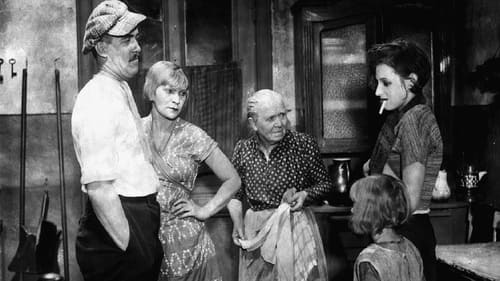
Kind
Mutter Krause, her daughter Erna and her son Paul live in a tenement in the poorer section of Berlin's Wedding district. Along with them lives "the Tenant", his soon-to-be bride Friede, who works as a prostitute, and her child whose name isn't revealed in the film. Mutter Krause is a quiet, long-suffering old woman who earns what little she can delivering newspapers. However, Paul is an alcoholic and spends all her money on drink. Mutter Krause can't pay back the money she owes the man whose newspapers she delivered and he accuses her of stealing and threatens her with arrest. Mutter Krause must then pawn her last valuable possession, a treasured memento of her late husband. Paul then breaks into the same pawn shop. He gets away but is later arrested. Meanwhile, Erna begins dating a young man with Communist views, who turns Erna to Communism and also helps her earn the money her mother needs by more honest means.

Lotte
If watching a fellow facing indifference/rejection in the slums of Berlin didn't convey enough pathos, Gerhard Lamprecht gathered much of the same crew from Die Verrufenen and turned his attention to the city's population of unwanted children for the heart-tugging Die Unehelichen, released the following year. The trio of foster children at the center of Die Verrufenen are survivors who use their own resourcefulness to get by when the kids' guardians and the system itself let them down.

